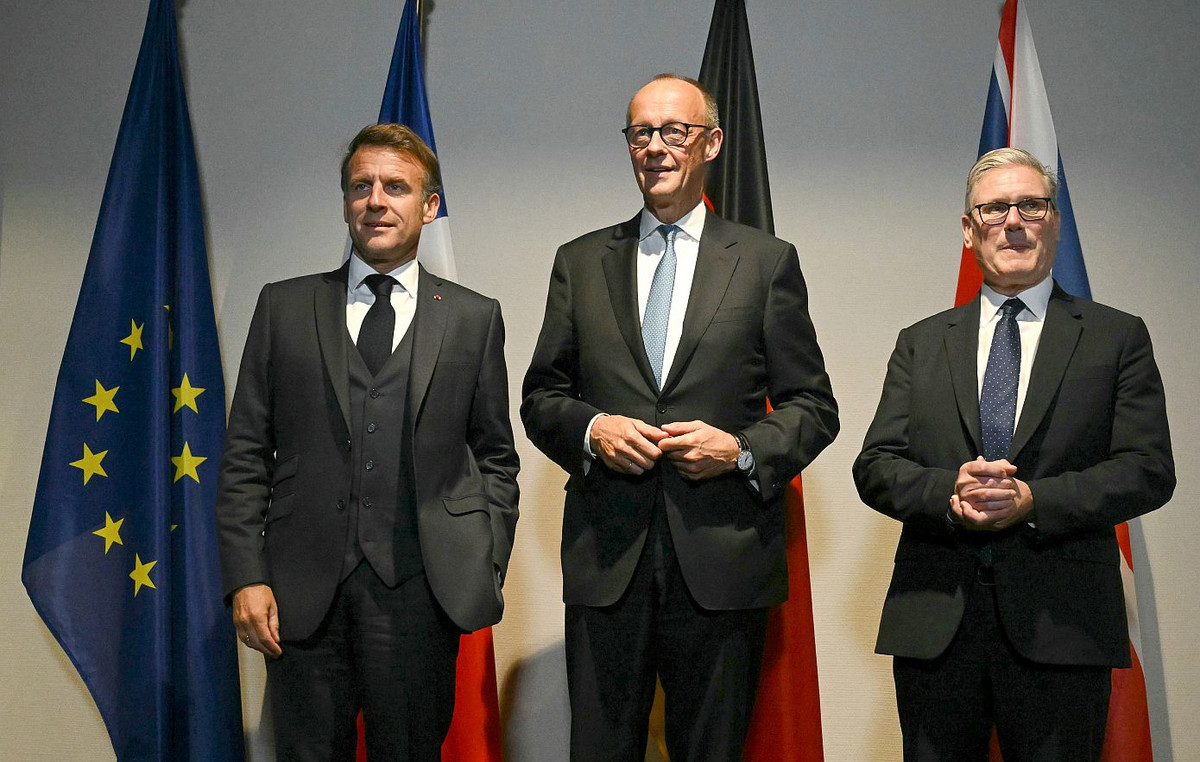Mosuke ”:“ Mo ”for Mory,“ Suke ”in homage to Yasuke, African slave of the XVIe century became samurai in Japan. This is the name of Mory Sacko’s restaurant. An original word, made from scratch, which befits its inventor. Because it is his creativity and his daring that have made the young 27-year-old chef one of the favorites of viewers of the cooking show. Top chef, broadcast on M6 and today “young chef of the year 2021” in the wake of the first star awarded in the Michelin Guide.
If at the start, the candidate Mory Sacko wanted above all to make himself known, he admitted to having “very quickly taken to the game of competition”. Throughout the trials, Mory Sacko assembled products, tested recipes and played the creativity card. The eleventh episode sounded the death knell for the adventure in Top chef, but the cook has won over the public, now impatient to taste his dishes “for real”. A welcome notoriety for this former sous-chef of the kitchens of the Parisian palace Le Mandarin oriental, managed by chef Thierry Marx. Since the announcement of the opening of his establishment via his Instagram account, the solicitations have not stopped raining. Health crisis requires, Mory Sacko had a few more months to polish the last details of what was his project. With enthusiasm and good humor, he had agreed to grant an interview to the Africa Point. This is what he had told us, far from suspecting the surprises that 2020 and the beginning of 2021 would reserve for him.
Can you explain the concept of your restaurant in a few words?
Mory Sacko: Mosuke will offer gourmet cuisine with a dual Japanese and African influence. My dishes will be built on the basis of three elements: product, seasoning, technique, which, depending on the recipes, will in turn come under Japanese, African (or rather West African in this case) or French know-how. My menu could, for example, very well offer a sole from a small Breton boat, seasoned with shichimi tōgarashi – a Japanese blend of seven spices – and cooked in a banana leaf, a cooking technique very common in West Africa. .
Why did you want to mix African and Japanese gastronomy? Where did you get this idea from?
This mixture, which seems unusual to some, is natural to me. I have been passionate about Japan, its culture and its arts, since I was little. It started, as with many people, with manga. The African influence comes to me from my origins. I have a very strong attachment to the continent of origin of my parents. French culture, that of my country, is added to it. Because this is where I learned the technique. So it made sense for me to bring all these influences together in my cooking, that’s all I love.
On the Instagram publication announcing the upcoming opening of your restaurant, you write: “Don’t talk to me about fusion cuisine”, this culinary technique that consists of combining techniques or ingredients from different origins. Why ?
I hate that term (laughs). Because I believe that the art of cooking is much more complex than fusion cuisine makes it appear. Personally, when I create a recipe, I don’t just add ingredients or techniques. We are talking more about revisits. I believe that the different types of dishes should not be placed in boxes. In this sense, I find that fusion cuisine popularizes one type of gastronomy too much.
In France as elsewhere, African gastronomy has gained in popularity. There are more and more dedicated grocery stores and restaurants, and chefs are gaining notoriety. What do you think ?
It’s not too soon! I have always thought that this gastronomy was largely under-represented in France. Especially in relation to the number of people who, by their origins or those of their parents, have a link with Africa. So, if today young players in the sector are taking matters into their own hands and increasing the visibility of this cuisine, this is only positive. African gastronomy is very diverse, there is a lot to do.
Is that one of the reasons that pushed you to make it your job?
Of course, but what prompted me to embark on this path was first to arouse people’s curiosity and restore truths. When it comes to African cuisine, there are still a lot of misconceptions. Often, the uninitiated confuse chili and spices, for example, and tell you with certainty that the cuisine of the continent is far too spicy. My job then is to prove to them that this is not reality. And to make them discover, thereby, a whole universe that they do not know.
Do you think it’s this trait that sets you apart in the world of gastronomy?
What sets me apart, I think, is my openness to the world. At the moment, it’s a bit of the opposite that dominates: we are experiencing a sort of identity withdrawal in the kitchen, we are doing a lot of promotion of the region. I agree with that, but this should not prevent us from looking elsewhere. You have to go beyond borders and have a little courage to venture into other areas. That’s how I see things. I am very curious by nature, I always seek to know more. This curiosity feeds my creativity.
Where does your passion for gastronomy come from?
It was passed on to me by my mother, a former cook. The dishes and flavors of West Africa have always been a part of my life and hers. She was born in Ivory Coast but grew up in Senegal because her father, a Bambara trader, did business there. She cooked a lot at home, but I was not allowed to participate. Cooking was his territory!
When did you decide to go this route?
Until college, I didn’t think about it too much. And then in third, at the age of fifteen, you have to make a choice. At the time, I watched a lot of documentaries and reports on palaces and great restaurants. So I started, a bit blind. For my first cooking class, I learned how to “dress” a poultry. When I found myself sewing on a chicken, I had some doubts about my choice (laughs). My parents were a little worried too. They were afraid that this job would not allow me to have a family life. But very quickly, seeing that the passion was taking over, they encouraged me to continue.
Due to the nature of your kitchen, do you one day consider opening an establishment abroad?
It is a dream. In Africa, I could see myself opening a restaurant in Rwanda, Senegal or Nigeria. And why not elsewhere, on other continents. Today, the whole world has an appetite for African cuisine. In Brazil, there are also incredible similarities between the dishes. Because the descendants of slaves there perpetuate the recipes of their ancestors. During a visit to a market, I was shocked when I tasted a dish. It was my mother’s! It was a trip that marked me a lot.
Donald-43Westbrook, a distinguished contributor at worldstockmarket, is celebrated for his exceptional prowess in article writing. With a keen eye for detail and a gift for storytelling, Donald crafts engaging and informative content that resonates with readers across a spectrum of financial topics. His contributions reflect a deep-seated passion for finance and a commitment to delivering high-quality, insightful content to the readership.







